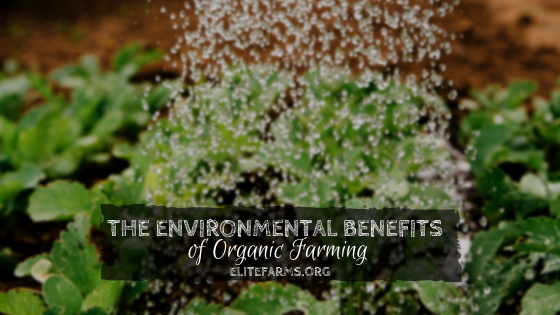The USDA describes organic farming as a system of livestock and plant production that integrates a mixture of biological, mechanical, and cultural procedures. Its purpose is to reuse our Earth’s natural resources and promote environmental harmony and biodiversity. Organic farming has long been seen as a healthy and ethical option to the more controversial, chemically-treated foods out there, and there are numerous reasons to turn to organic products, regardless of whether you’re a producer or a consumer.
Improves Quality of Soil
The fertilizers that are used in conventional farming extract about 50-65% of the nitrogen and carbon that reside within the soil. This type of continuous reduction is not sustainable so many fields eventually become depleted of nutrients and useless for further farming. Organic fertilizer, however, enriches the soil with organic matter and encourages the growth of beneficial worms and microbes. This maintains the field so it can be used over and over again.
Biodiversity
The pesticides and herbicides used in today’s farming are endangering the lives of many species living within the fields, as well as those in the surrounding areas. Organic farming, by contrast, either uses no chemicals or uses them in smaller doses. Organic farms, therefore, have become a refuge for many different types of plants, birds, beetles, butterflies, and mammals that have nowhere else to live because of the chemical treating of other farms.
Reduced Pollution
Conventional agricultural methods use synthetic fertilizers that are rich in nitrogen. This nitrogen then gets washed away by rain and ends up in rivers and water-based ecosystems, where it threatens the survival of wildlife. There are currently 146 bay area zones around the world that are being affected by the nitrogen runoffs from the mainland. With more farmers embracing organic farming, the hope is that one day we can eventually reduce this nitrogen pollution and contribute instead to the shrinking of these hazardous zones.
Less Energy Required
The manufacturing of synthetic fertilizers requires a lot of energy. This can be reduced drastically by using organic farming methods instead. Organic crops use on average 35% less energy than other types of farming.
Preserved Carbon in the Soil
With conventional farming, organic matter is evaporated into the air which contributes to issues such as global warming and carbon dioxide pollution. Organic farming is able to sustain the organic carbon found in the ground. If the United States completely switched to organic farming, there would be 580 billion pounds of extra carbon dioxide in our soil.

